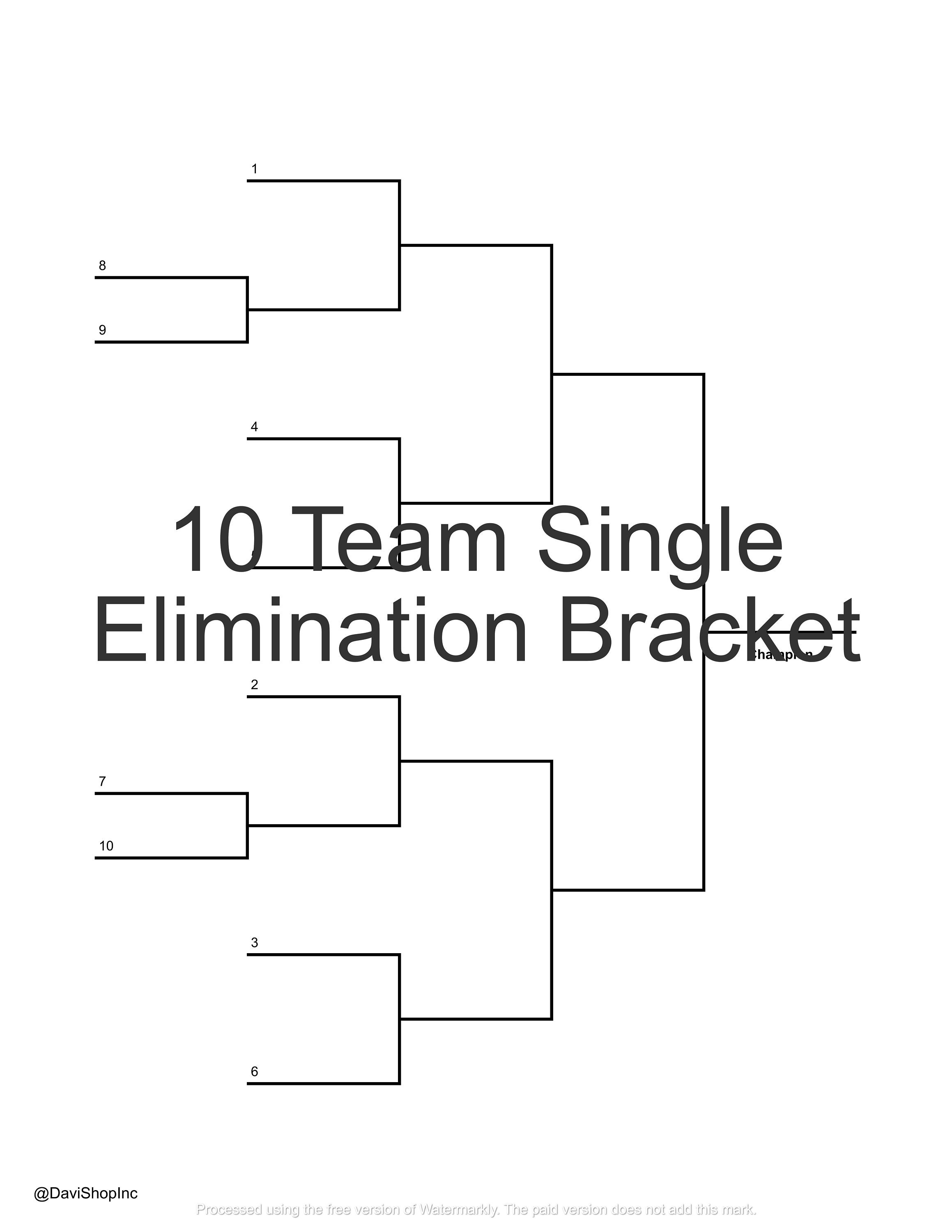Is FA Cup Single Elimination? A Comprehensive Guide To The FA Cup Format
The FA Cup is one of the most prestigious football competitions globally, and many fans often ask, "Is FA Cup single elimination?" The answer to this question lies in understanding the structure and rules that govern this historic tournament. Established in 1871, the FA Cup has a rich history that continues to captivate millions of fans worldwide. In this article, we will delve into the details of the FA Cup's format, exploring whether it is truly a single-elimination tournament.
As a single-elimination tournament, the FA Cup follows a straightforward structure where teams are knocked out after losing a match. This format creates intense competition and drama, making every game crucial for teams hoping to lift the coveted trophy. However, there are nuances to the rules that make the FA Cup unique, which we will explore further in this article.
This guide aims to provide a thorough understanding of the FA Cup's format, its history, and its significance in the world of football. Whether you're a seasoned fan or new to the sport, this article will answer all your questions about the FA Cup and its single-elimination nature.
Read also:Before The Crypt The Untold Journey Of Cryptocurrency Beginnings
Table of Contents
- History of the FA Cup
- Is FA Cup Single Elimination?
- FA Cup Format
- Replays in the FA Cup
- Teams Participating in the FA Cup
- FA Cup Statistics
- FA Cup Records
- Importance of the FA Cup
- Comparison with Other Competitions
- Future of the FA Cup
History of the FA Cup
The Football Association Challenge Cup, commonly known as the FA Cup, was first held in 1871-1872, making it the oldest national football competition in the world. Initially, only 15 teams participated, and the first winners were Wanderers FC. Over the years, the tournament has grown significantly, with over 700 teams now competing annually. The FA Cup has produced numerous memorable moments and legendary players, cementing its place in football history.
Evolution of the FA Cup
The format of the FA Cup has evolved over the years to accommodate the increasing number of participants. Initially, the competition was limited to amateur clubs, but with the professionalization of football, the tournament expanded to include teams from all levels of English football. This inclusivity has contributed to the FA Cup's popularity and its reputation as the "greatest cup competition in the world."
Is FA Cup Single Elimination?
Yes, the FA Cup is a single-elimination tournament. In this format, teams are eliminated from the competition after losing a match. This structure ensures that every game is a high-stakes affair, as defeat means the end of a team's campaign. However, there are exceptions to this rule, such as replays, which we will discuss in detail later.
Key Features of Single Elimination
- Teams are eliminated after a single loss.
- Each match is crucial, as it determines a team's fate in the competition.
- The format creates excitement and unpredictability, with underdogs often causing upsets.
FA Cup Format
The FA Cup format consists of several rounds, starting with the preliminary rounds and culminating in the final at Wembley Stadium. The competition is open to all clubs affiliated with The Football Association, including those from the National League System. The tournament is divided into several stages, each with its own significance.
Stages of the FA Cup
- Preliminary Rounds: These rounds involve lower-tier teams competing for a place in the main draw.
- First Round: The first round marks the entry of teams from the Football League.
- Third Round: This round sees the entry of Premier League and Championship teams, increasing the competition's intensity.
- Final: The ultimate showdown takes place at Wembley Stadium, where two teams battle for the prestigious trophy.
Replays in the FA Cup
One of the unique aspects of the FA Cup is the inclusion of replays in case of a draw. If a match ends in a tie, the teams play a replay at the opponent's home ground to determine the winner. However, starting from the quarter-finals, extra time and penalties are used instead of replays to decide the outcome.
Impact of Replays on Teams
Replays can have both positive and negative effects on teams. On the one hand, they provide an opportunity for teams to rectify their mistakes and secure a win. On the other hand, replays can be physically and mentally taxing, especially for lower-tier teams competing against stronger opponents.
Read also:Amy Taulbee The Inspiring Journey And Untold Stories
Teams Participating in the FA Cup
Over 700 teams participate in the FA Cup annually, ranging from amateur clubs to Premier League giants. This inclusivity is one of the tournament's defining features, allowing fans from all levels of football to witness their teams compete for glory. The FA Cup has produced numerous fairy-tale stories, with lower-tier teams defeating top-flight clubs in stunning upsets.
Notable FA Cup Winners
- Arsenal FC: The most successful team in FA Cup history, with 14 titles.
- Manchester United: Second on the list with 12 titles.
- Chelsea FC: A formidable force in recent years, with 8 titles.
FA Cup Statistics
The FA Cup has a wealth of statistics that highlight its significance in the football world. From attendance records to scoring feats, the tournament has produced numerous remarkable achievements. According to historical data, the 1933 FA Cup final between Everton and Manchester City holds the record for the highest attendance, with over 99,000 spectators.
Key FA Cup Statistics
- Highest Scoring Match: 14 goals in the 1885 FA Cup final between Nottingham Forest and Derby County.
- Most Goals in a Single Season: 34 goals by Arsenal in the 1935-1936 season.
- Longest Winning Streak: 22 consecutive wins by Manchester United between 1993 and 2004.
FA Cup Records
The FA Cup has witnessed numerous records over the years, showcasing the tournament's competitive nature. From individual achievements to team milestones, these records reflect the tournament's rich history and legacy. Some of the most notable records include:
Individual Records
- Most Goals Scored: Jimmy Greaves, with 35 goals in FA Cup matches.
- Youngest Scorer: Arthur Wharton, who scored at the age of 17 years and 256 days.
- Oldest Scorer: Stanley Matthews, who scored at the age of 42 years and 127 days.
Importance of the FA Cup
The FA Cup holds immense importance in the world of football, both culturally and competitively. It serves as a platform for lower-tier teams to showcase their talent and compete against top-flight clubs. The tournament also provides fans with thrilling matches and unforgettable moments, making it a cherished event in the football calendar.
Why Fans Love the FA Cup
- Unpredictability: The single-elimination format ensures that every match is crucial.
- Tradition: The tournament's long history and prestigious trophy make it a symbol of excellence.
- Inclusivity: Teams from all levels of English football compete, creating a level playing field.
Comparison with Other Competitions
While the FA Cup shares similarities with other football competitions, such as the UEFA Champions League and the Copa del Rey, it has its own unique characteristics. Unlike these tournaments, the FA Cup includes teams from all levels of English football, making it more inclusive and accessible. Additionally, the single-elimination format adds an extra layer of excitement and unpredictability.
Key Differences
- Format: The FA Cup is a single-elimination tournament, while others may use group stages.
- Participants: The FA Cup includes teams from all levels, whereas other competitions are limited to top-tier clubs.
- Tradition: The FA Cup has a longer history and is considered the oldest national football competition.
Future of the FA Cup
As football continues to evolve, the FA Cup remains a vital part of the sport's landscape. Efforts are being made to modernize the tournament while preserving its traditions and values. The inclusion of replays and the single-elimination format are under review, with discussions ongoing about potential changes to enhance the tournament's appeal.
Proposed Changes
- Elimination of Replays: To reduce the burden on teams and streamline the competition.
- Introduction of Neutral Venues: Hosting matches at neutral venues to ensure fairness and reduce travel costs.
- Increased Prize Money: To incentivize teams and enhance the tournament's competitiveness.
Conclusion
In conclusion, the FA Cup is indeed a single-elimination tournament, with a rich history and a unique format that captivates fans worldwide. From its inception in 1871 to its current status as one of the most prestigious competitions, the FA Cup has consistently delivered excitement and drama. The tournament's inclusivity, unpredictability, and tradition make it a beloved event in the football calendar.
We invite you to share your thoughts and experiences with the FA Cup in the comments section below. For more insightful articles on football and other sports, explore our website and stay updated with the latest developments in the world of sports. Thank you for reading, and we hope you enjoyed this comprehensive guide to the FA Cup!


